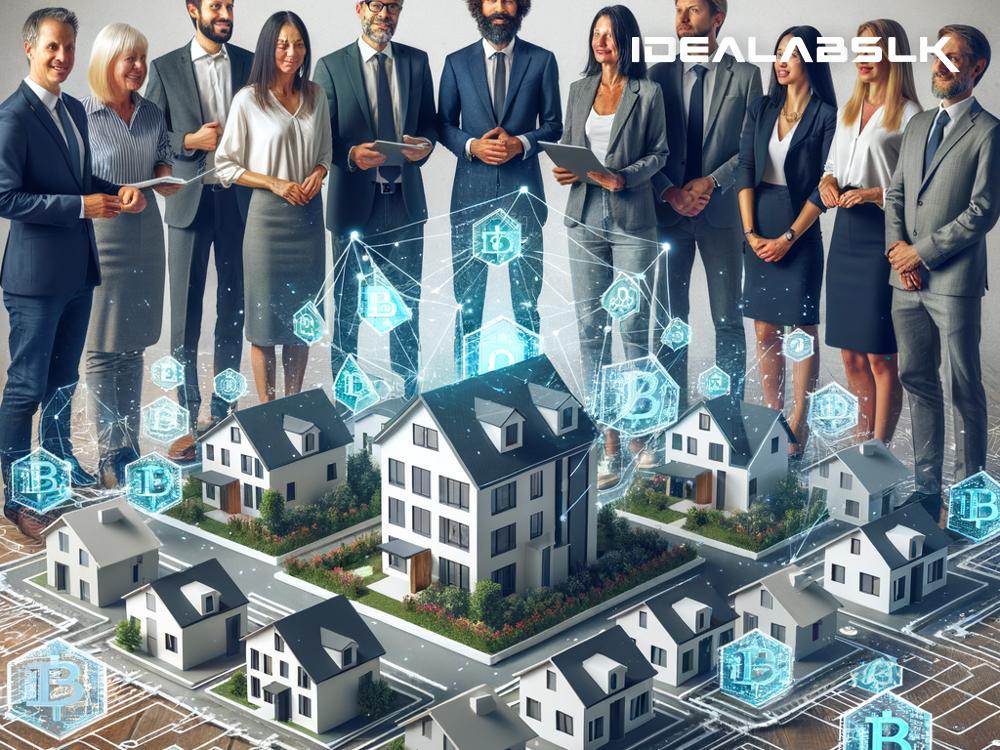Unpacking Blockchain: Transforming Real Estate Deals
In the world of buying and selling homes and properties, the process has remained pretty much the same for decades: complex, paper-heavy, and filled with middlemen. But what if I told you there's a technology that's beginning to shake things up, making these transactions smoother, quicker, and more secure? That technology is blockchain, and it's not just for cryptocurrencies like Bitcoin anymore. Let's dive into how blockchain can revolutionize real estate deals, making them more efficient for everyone involved.
What is Blockchain?
Imagine a digital ledger that's shared across a network of computers, where transactions are recorded in a secure, transparent, and immutable way. That's blockchain. Once a transaction is logged, it cannot be altered or deleted. This characteristic ensures an unparalleled level of trust and security, making it an attractive proposition for industries far beyond finance.
Transparency and Security Like Never Before
In traditional real estate transactions, there's a lot of paperwork and numerous parties involved, such as brokers, legal teams, and banks. Each step is ripe for delays and errors. Blockchain can streamline this by providing a transparent record of the property's history, including past transactions, ownership, and even disputes. This makes the verification process faster since all the information is readily available and immutable on the blockchain.
The security aspect is a game-changer. The decentralized nature of blockchain reduces the risk of fraud, as altering records would require changing every copy of the ledger across the entire network simultaneously, an almost impossible feat.
Speeding Things Up with Smart Contracts
One of the most exciting applications of blockchain in real estate is smart contracts. These digital contracts automatically execute transactions once certain conditions are met, without the need for intermediaries. For example, upon the successful verification of a buyer's funds, the smart contract could immediately transfer property ownership. This not only speeds up the process significantly but also reduces transaction costs, as there's less need for middlemen like lawyers and realtors.
Tokenization: Unlocking Real Estate's Liquidity
Blockchain introduces the concept of tokenization to real estate, where a property's value is converted into digital tokens that can be easily bought, sold, or traded. This can make real estate, traditionally an illiquid asset class, much more accessible and divisible. Instead of needing substantial capital to invest in real estate, individuals could buy tokens representing a fraction of a property's value, enabling a broader audience to participate in real estate investment.
The Future is Here, but There Are Challenges
While the potential of blockchain in real estate is vast, there are hurdles to be overcome. Regulatory acceptance is one of the most significant challenges, as current laws don't always accommodate the nuances of blockchain transactions. There's also the task of digitizing and standardizing property records, a monumental effort given the variety of records and their formats worldwide.
Education is another barrier. Both industry professionals and consumers need to understand blockchain's benefits and how it operates, which will take time and effort. But the interest is there, driven by the promise of efficiency, security, and liquidity that blockchain can bring to real estate.
Concluding Thoughts
Blockchain has the potential to be the cornerstone of future real estate transactions, making them more efficient, transparent, and accessible. While the road ahead has its challenges, the benefits are too significant to ignore. As we see more adoption and integration of blockchain technology in real estate, we're not just looking at a shift in how we conduct transactions but a reimagining of property ownership for the digital age.
So, whether you're a homeowner, investor, or just someone interested in the future of real estate, keeping an eye on blockchain developments is bound to be an exciting journey. With its promise of making real estate deals smoother and more efficient, blockchain stands ready to redefine the landscape in ways we're just beginning to comprehend.

